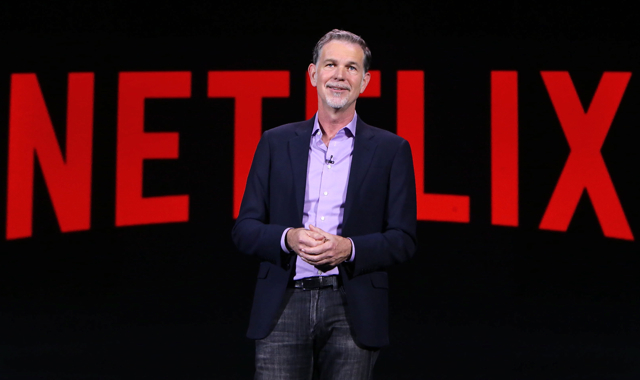Netflix Foreign Sales Catching Up to North American Revenue
February 28, 2017
At the opening of the Mobile World Congress in Barcelona yesterday, Netflix chief executive Reed Hastings gave a keynote address, indicative of the importance of his company’s many international partnerships with cellphone and cable operators. As a result of those relationships, Netflix is able to build out its subscriber base without much advertising and more readily enter new markets. Hastings’ appearance in Barcelona jibes with the company’s stated goal of focusing on subscribers outside the U.S.
The New York Times reports that the company’s North American revenue, which reached $1.4 billion in Q4 2016, “still constitutes a majority of its sales,” but that international sales in 190 countries is catching up, at almost $1 billion in the same period. Netflix also added more than five million new international users in that quarter, “more than double the number of new users in the United States, according to regulatory filings.”
“All the partnership deals, we really believe in; that is why we are doing more of them,” said Hastings to analysts last month. “Those partnership deals are good for the customers, good for us and good for the partner.”
According to analysts, however, many of these operators “still fret that Netflix — alongside other American tech giants like Google and Facebook — will benefit more from these relationships than they will.”
“Netflix’s exclusive shows are dominating people’s water cooler moments,” said Ovum senior analyst Tony Gunnarsson. “Consumers are already watching Netflix, so it’s better for operators to add Netflix to their services or people will go elsewhere.” The relationship between Netflix and Orange, one of its first international partnerships, was emblematic of this tension. Orange customers got a one-month free trial with Netflix, and the ability to pay for it through their monthly phone contracts.
But Orange “was concerned that Netflix, whose European headquarters are in Amsterdam, had not signed on to French rules requiring online video distributors to fund local-language content.” Further, company chief executive Stéphane Richard feared that Orange was a so-called Trojan horse for Netflix, which would use it to build international subscribers and then cut the relationship.
British content/cable provider Sky has refused to include Netflix on its set-top-box, seeing it as a competitor to its own original programming. Likewise, Netflix has had tussles in the U.S. with Comcast and Verizon, which wanted it to pay to use their networks. Netflix ultimately agreed to pay for “improved access,” and since then Comcast included it on its set-top box.
Despite these struggles, most international cellphone and cable companies make deals with Netflix to gain access to its exclusive programming, a competitive advantage. “Netflix wants to be exposed to as many people as it can,” said Enders Analysis analyst Tom Harrington. “Telecom operators want to keep people inside their walls, so they are willing to let Netflix in.”
Related:
Reed Hastings: Netflix Does Stories for Every Screen, Not Mobile-Optimized Content, Variety, 2/27/17


No Comments Yet
You can be the first to comment!
Sorry, comments for this entry are closed at this time.